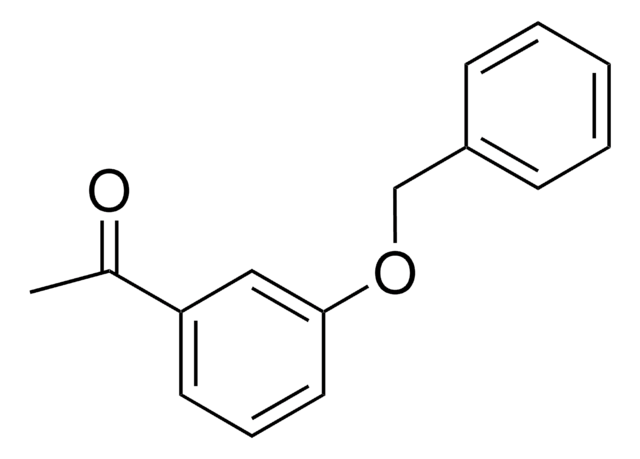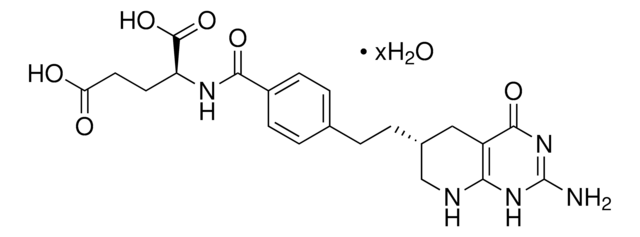Wichtige Dokumente
SML0113
Brequinar sodium salt hydrate
≥97% (HPLC)
Synonym(e):
6-Fluoro-2-(2′-fluoro[1,1′-biphenyl]-4-yl)-3-methyl-4-quinolinecarboxylic acid sodium hydrate, Biphenquinate sodium hydrate, DuP 785 hydrate, NSC 368390 hydrate
About This Item
Empfohlene Produkte
Qualitätsniveau
Assay
≥97% (HPLC)
Form
powder
Farbe
off-white to brown
Löslichkeit
DMSO: ≥5 mg/mL
Lagertemp.
2-8°C
SMILES String
O.[Na+].Cc1c(nc2ccc(F)cc2c1C([O-])=O)-c3ccc(cc3)-c4ccccc4F
InChI
1S/C23H15F2NO2.Na.H2O/c1-13-21(23(27)28)18-12-16(24)10-11-20(18)26-22(13)15-8-6-14(7-9-15)17-4-2-3-5-19(17)25;;/h2-12H,1H3,(H,27,28);;1H2/q;+1;/p-1
InChIKey
IZXTTXFXRQGHKO-UHFFFAOYSA-M
Anwendung
- in drug response assays
- to induce depletion of cellular pyrimidine pools
- in cell proliferation assays
Biochem./physiol. Wirkung
Lagerklassenschlüssel
11 - Combustible Solids
WGK
WGK 3
Flammpunkt (°F)
Not applicable
Flammpunkt (°C)
Not applicable
Analysenzertifikate (COA)
Suchen Sie nach Analysenzertifikate (COA), indem Sie die Lot-/Chargennummer des Produkts eingeben. Lot- und Chargennummern sind auf dem Produktetikett hinter den Wörtern ‘Lot’ oder ‘Batch’ (Lot oder Charge) zu finden.
Besitzen Sie dieses Produkt bereits?
In der Dokumentenbibliothek finden Sie die Dokumentation zu den Produkten, die Sie kürzlich erworben haben.
Kunden haben sich ebenfalls angesehen
Unser Team von Wissenschaftlern verfügt über Erfahrung in allen Forschungsbereichen einschließlich Life Science, Materialwissenschaften, chemischer Synthese, Chromatographie, Analytik und vielen mehr..
Setzen Sie sich mit dem technischen Dienst in Verbindung.












